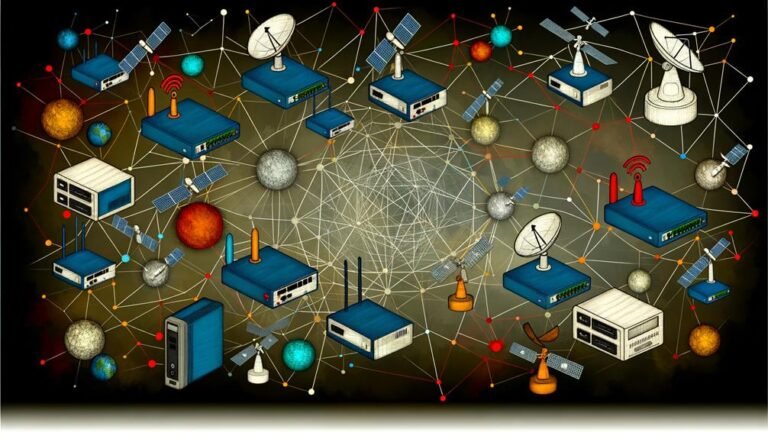Master Self-Regulation for Personal Growth
Self-regulation is a vital skill for personal growth and success. It encompasses self-control, emotional regulation, behavior management, self-monitoring, impulse control, executive function, goal setting, inhibition, and self-discipline. By mastering self-regulation, you can unlock your full potential and achieve your goals.
Key Takeaways:
- Self-regulation is crucial for personal growth and success.
- It involves skills like self-control, emotional regulation, and goal setting.
- Self-awareness and self-discipline are important components of self-regulation.
- Self-regulation can be developed through practice and effective strategies.
- Mastering self-regulation enhances overall well-being and increases success in various aspects of life.
What Is Self-Regulation?
Self-regulation can be defined as the control of oneself by oneself. It is the ability to manage emotions, control impulses, and make decisions that align with long-term goals and values. Self-regulation encompasses both behavior and emotions, playing a crucial role in personal development and overall well-being.
Self-regulation involves being aware of your thoughts, emotions, and actions, and being able to regulate them effectively. It requires self-control, discipline, and the ability to monitor and adjust your behavior based on the situation.
In terms of behavior, self-regulation involves setting and achieving goals, resisting temptations, and maintaining focus and perseverance. Emotionally, self-regulation involves managing and expressing emotions in a healthy and appropriate manner, as well as recognizing and regulating emotional responses to different situations.
Self-regulation is a skill that can be developed and strengthened through practice and conscious effort. It allows individuals to navigate challenging situations, make wise choices, and maintain a sense of balance and well-being.
Importance of Self-Regulation
Self-regulation is crucial for personal growth and success in various aspects of life. Here are some key reasons why self-regulation is important:
- Improved emotional well-being: Self-regulation helps manage and control emotions, reducing stress and promoting emotional resilience.
- Better decision-making: Self-regulation enables individuals to make rational and thoughtful decisions, considering long-term consequences and goals.
- Enhanced self-discipline: Self-regulation strengthens self-discipline, supporting the ability to stick to commitments, follow through with tasks, and overcome challenges.
- Effective behavior management: Self-regulation allows individuals to control impulses and manage behavior, promoting positive interactions with others and maintaining healthy relationships.
- Goal achievement: Self-regulation aids in setting and pursuing goals, staying motivated, and taking consistent action towards desired outcomes.
Developing self-regulation skills can lead to personal growth, increased well-being, and overall success in various areas of life.
The Psychology of Self-Regulation
Self-regulation is a fundamental aspect of personal growth and success. It involves a continuous, active process of monitoring our behavior, evaluating it against personal and contextual standards, and reacting to our own actions. By understanding the psychology behind self-regulation, we can develop the necessary skills to navigate challenges and achieve our goals.
Self-awareness is a critical component of self-regulation. It involves being conscious of our thoughts, emotions, and actions in real-time. When we are self-aware, we can identify when our behavior deviates from our desired standards and take corrective measures. Self-reflection, on the other hand, allows us to introspect and evaluate our actions retrospectively. By reflecting on past experiences, we gain valuable insights that inform our future decision-making and behavior.
Emotional intelligence plays a significant role in the development and maintenance of self-regulation skills. It encompasses the ability to recognize, understand, and manage our emotions effectively. Emotional intelligence enables us to navigate challenging situations, regulate our emotional responses, and make decisions aligned with our long-term goals. By honing our emotional intelligence, we can enhance our self-regulation capabilities and improve our overall wellbeing.
The Importance of Self-Awareness
Self-awareness is the foundation of self-regulation. It allows us to understand our strengths, weaknesses, and triggers, enabling us to make more informed choices. By being aware of our emotions, thoughts, and behaviors, we can identify patterns, make adjustments, and respond in a way that aligns with our values and goals. Self-awareness also fosters empathy and understanding towards others, facilitating healthier relationships and effective communication.
“The first step toward change is awareness. The second step is acceptance.”
Cultivating Self-Reflection
Self-reflection is a powerful tool for personal growth and self-regulation. It provides an opportunity to assess our actions, decisions, and outcomes, enabling us to learn from our experiences. By setting aside dedicated time for self-reflection, we can gain valuable insights, challenge ingrained beliefs, and develop new perspectives. Engaging in journaling, meditation, or seeking feedback from trusted individuals can support the practice of self-reflection and foster continuous self-improvement.
The Role of Emotional Intelligence
Emotional intelligence encompasses a range of skills, including self-awareness, empathy, and emotional regulation, that are crucial for self-regulation. Developing emotional intelligence involves understanding and managing our own emotions, as well as accurately perceiving and responding to the emotions of others. By enhancing our emotional intelligence, we can navigate complex interpersonal dynamics, regulate our emotional responses, and make decisions that align with our values and long-term objectives.
What is Self-Regulation Theory?
Self-regulation theory is a framework that delves into the intricate process of decision-making and self-control. It focuses on understanding and optimizing the components involved in regulating our thoughts, emotions, and behaviors. By identifying and developing these key components, we can enhance our self-regulatory abilities and make more conscious and intentional choices.
At the core of self-regulation theory are personal standards, which act as internal benchmarks for evaluating our actions and behaviors. These standards serve as guiding principles and help us measure our progress towards desired outcomes.
Motivation plays a significant role in self-regulation theory. It provides the driving force that fuels our efforts to regulate our behavior. When our actions align with our values and long-term goals, our motivation to adhere to self-imposed standards strengthens, empowering us to make consistent choices that support our personal growth.
Monitoring is another critical aspect of self-regulation theory. It involves observing and assessing both external situations and our internal thoughts and emotions. By monitoring our surroundings and our internal states, we gain valuable information that helps us make more informed decisions and maintain self-control in various situations.
Willpower is an essential element emphasized by self-regulation theory. It refers to our ability to resist short-term temptations and make choices that align with our long-term goals. Willpower enables us to overcome impulsive urges and stay focused on our desired outcomes, even when faced with distractions or immediate gratification.
Understanding self-regulation theory provides valuable insights into our self-regulatory activities. By applying the principles and techniques outlined in this theory, we can develop a stronger sense of self-control and make healthier choices that support our overall well-being and personal growth.
Why Self-Regulation is Important for Wellbeing
Self-regulation is essential for your overall wellbeing. By developing and honing your self-regulation skills, you can effectively manage stress, control emotions, make better decisions, and achieve your goals. Research has shown that individuals with good self-regulation skills experience improved emotional resilience, increased happiness, and better overall wellbeing.
Self-regulation plays a crucial role in stress management. When faced with challenging situations, being able to regulate your emotions and reactions can help you maintain balance and effectively cope with stressors. It allows you to navigate through difficult experiences with more clarity and composure, minimizing the negative impact of stress on your wellbeing.
Furthermore, self-regulation contributes to emotional resilience. It enables you to understand, regulate, and channel your emotions in a healthy and productive manner. By practicing self-regulation, you can cultivate emotional resilience, which empowers you to bounce back from setbacks, adapt to change, and maintain a positive outlook even in the face of adversity.
Self-regulation also plays a vital role in goal achievement. It helps you stay focused, motivated, and disciplined, which are key factors in reaching your goals. With self-regulation, you can effectively prioritize tasks, manage your time and resources, and overcome obstacles that may hinder your progress. By harnessing your self-regulation skills, you can enhance your ability to set and achieve meaningful goals, leading to a sense of fulfillment and accomplishment.
In summary, self-regulation is a fundamental aspect of your wellbeing. It empowers you to manage stress, regulate emotions, make sound decisions, and achieve your goals. By nurturing and practicing self-regulation, you can enhance your overall wellbeing, experience greater emotional resilience, and lead a more fulfilling life.
Self-Regulation in Early Childhood and Adult Life
Self-regulation skills are not static, but rather they develop and evolve from early childhood and continue to shape our lives throughout adulthood. Understanding the role of self-regulation at different stages can help foster these skills and enhance overall well-being.
Self-Regulation in Early Childhood
During early childhood, self-regulation is essential for emotional and social development. It involves managing emotions, controlling impulses, and navigating social interactions effectively. Children with well-developed self-regulation skills are better equipped to handle challenges, adapt to new situations, and build positive relationships.
Research has shown that self-regulation in early childhood is linked to better academic performance, increased self-esteem, and improved social competence.
Fostering self-regulation skills in early childhood can be achieved through various strategies:
- Providing a structured and consistent environment to establish routines and expectations.
- Teaching children about emotions, helping them identify and express their feelings in appropriate ways.
- Encouraging problem-solving and decision-making skills to build autonomy and independence.
- Promoting self-control through age-appropriate activities that require patience and discipline.
By nurturing self-regulation in early childhood, we lay a strong foundation for future growth and development.
Self-Regulation in Adult Life
As we transition into adulthood, self-regulation becomes even more critical for managing emotions, making responsible decisions, and maintaining healthy relationships. It involves regulating thoughts, behaviors, and motivations to align with long-term goals and values.
“Self-regulation is the key to successfully navigating the complexities and demands of adult life.”
Being self-regulated as an adult enables us to:
- Manage stress effectively, minimizing its negative impact on physical and mental well-being.
- Make informed and rational decisions, considering both short-term gratification and long-term consequences.
- Foster healthy relationships by empathizing, communicating effectively, and resolving conflicts constructively.
- Develop life skills such as time management, organization, and self-discipline for increased productivity.
Building self-regulation skills in adulthood requires consistent practice and self-awareness. Strategies such as mindfulness, self-reflection, and setting realistic goals can contribute to developing and enhancing self-regulation abilities.
Understanding the role of self-regulation in different life stages empowers individuals to cultivate these essential skills. Whether in early childhood or adulthood, self-regulation is a lifelong journey that contributes to personal growth and enhanced well-being.
Activities and Exercises for Training Self-Regulation
Enhancing self-regulation skills can be achieved through various activities and exercises. These self-regulation activities and exercises provide practical opportunities to strengthen self-control, emotional regulation, and impulse control. Whether you are seeking to improve self-regulation in yourself or support others in their journey, incorporating these strategies into daily routines can lead to significant personal growth.
1. Mindfulness Meditation
Engaging in mindfulness meditation can be a powerful tool for developing self-regulation skills. This practice involves focusing on the present moment, observing thoughts and emotions without judgment, and cultivating a sense of calm and awareness. By regularly practicing mindfulness meditation, individuals can enhance their ability to regulate emotions, manage stress, and make conscious choices.
2. Deep Breathing Exercises
Deep breathing exercises are simple yet effective self-regulation exercises that promote relaxation and emotional stability. By taking slow, deep breaths and focusing on the breath as it enters and leaves the body, individuals can activate the body’s relaxation response and reduce feelings of anxiety or tension. These exercises can be done in various settings and can quickly provide a sense of calm and control.
3. Cognitive Reappraisal
Cognitive reappraisal is a self-regulation technique that involves reframing or changing one’s perception of a situation or event. By challenging negative or unhelpful thoughts and replacing them with more positive and constructive interpretations, individuals can regulate their emotions and responses. Cognitive reappraisal can be particularly beneficial in managing stress, dealing with setbacks, and fostering resilience.
4. Physical Exercise
Engaging in regular physical exercise is not only beneficial for physical health but also plays a vital role in self-regulation training. Physical exercise has been shown to improve mood, reduce stress, and enhance cognitive function. By incorporating activities such as walking, jogging, yoga, or dancing into daily routines, individuals can enhance their overall self-regulation abilities.
“Engaging in regular physical exercise is not only beneficial for physical health but also plays a vital role in self-regulation training.”
These activities and exercises form the foundation for developing self-regulation skills. Practices such as mindfulness meditation, deep breathing exercises, cognitive reappraisal, and physical exercise can be adapted to suit individual preferences and lifestyles. Consistency and commitment to these self-regulation training activities can lead to long-term positive changes in self-control, emotional regulation, and overall well-being.
Next, we will explore additional resources, interventions, and tools that can further support individuals in their self-regulation journey.
Further Resources, Interventions, and Tools for Self-Regulation
In this section, we will provide you with a range of resources, interventions, and tools that can support your journey in developing self-regulation skills. These valuable assets will help you enhance self-control, emotional management, and overall self-awareness, ultimately leading to personal growth and success.
Books
If you prefer reading, these books offer insightful guidance and practical techniques for improving self-regulation:
- “Emotional Intelligence” by Daniel Goleman – Explores the relationship between emotions and self-regulation, providing strategies to cultivate emotional intelligence.
- “The Willpower Instinct” by Kelly McGonigal – Examines the science behind willpower and offers techniques to strengthen self-control.
- “Thinking, Fast and Slow” by Daniel Kahneman – Explores the cognitive processes that influence decision-making and self-regulation.
Apps
Technology can be a valuable ally in developing self-regulation skills. Here are some popular apps that offer interactive exercises and tools:
- Calm – Provides guided meditations, breathing exercises, and sleep stories to promote relaxation and emotional balance.
- Headspace – Offers meditation and mindfulness practices designed to improve focus, reduce stress, and boost overall well-being.
- Forest – Helps you stay focused and avoid distractions by growing a virtual forest while you work or study.
Online Courses
If you prefer a structured learning experience, online courses can provide comprehensive training in self-regulation. Consider the following platforms:
- Coursera – Offers courses on topics such as emotional intelligence, self-management, and self-control.
- Udemy – Provides a wide range of self-regulation courses, including mindfulness training and stress management.
- LinkedIn Learning – Features courses on self-regulation, emotional intelligence, and personal development.
Therapy Options
For individuals requiring more personalized support, therapy can be an effective option. Consider the following therapy modalities:
- Cognitive-Behavioral Therapy (CBT) – Focuses on identifying and changing thought patterns and behaviors that impact self-regulation.
- Dialectical Behavior Therapy (DBT) – Combines elements of CBT and mindfulness to enhance emotional regulation skills.
- Acceptance and Commitment Therapy (ACT) – Helps individuals develop psychological flexibility and values-based behavior change.
Remember, each person’s journey towards self-regulation is unique. Explore these resources, interventions, and tools to find the ones that resonate with you and align with your goals. Continuously practice and hone your self-regulation skills, and you will experience personal growth and success in various areas of your life.
### Characters Table | Character | Movie | Occupation | |-------------|-------------------|------------------| | Harry Potter| Harry Potter | Student, Wizard | | Katniss Everdeen| The Hunger Games| Rebel, Survivor | | Tony Stark | Iron Man | Genius, Inventor |
Conclusion
Developing self-regulation is a lifelong journey that requires practice and effort. However, mastering self-regulation can lead to personal growth, improved emotional wellbeing, and increased success in various aspects of life. By enhancing self-awareness, practicing self-reflection, and using effective self-regulation strategies, you can unleash your full potential and achieve your goals.
Self-regulation is an essential skill that allows you to manage your emotions, control your impulses, and make decisions that align with your long-term goals and values. It plays a crucial role in personal development and well-being, helping you navigate through various challenges and obstacles that come your way.
Through self-regulation, you can build strong executive function skills, including goal setting, inhibition, and self-discipline. These skills enable you to stay focused, overcome distractions, and persevere in the face of difficulties. By consistently practicing self-regulation, you can strengthen your ability to self-monitor, manage stress, and make thoughtful choices that support your personal growth and overall wellbeing.






